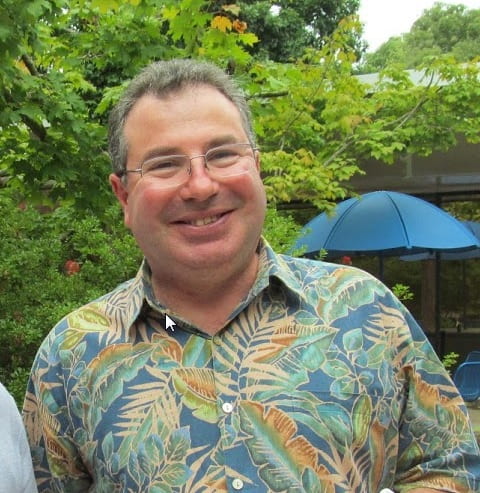Photo Credit: Mark Lang.
September 21, 2019 – Climate change – tales from the ocean!
David Black, Stony Brook University. Much of what we know about our planet’s climate comes from the ocean. Meet with a local researcher who study climate change and learn how marine scientists use mud, corals, and more to learn about ice ages, greenhouse worlds, and climate change.
Interviewing David
Where did you go to school?
I went to the University of Miami for both my B.S. and Ph.D.
What is your area of research?
I’m a marine geologist, and more specifically, a paleoceanographer. I use marine fossils and the chemistry of those fossils to learn about the physics of our ocean and atmosphere through time.
Who or what inspired you to become involved in marine science?
I moved around a lot growing up, and many of the places I’ve lived (Hawaii, Florida, U.S. Virgin Islands, California, Virginia, and more) were near the ocean. As a child I could swim before I could walk! I was fortunate to take a class with a really gifted professor when I was a freshman in college – he guided me towards the field of past climate change.
What qualities do you think are important in order to become a scientist?
Here are lots of them! Creativity is important to asking exciting and interesting scientific questions. Self-discipline is another key quality. Marine scientists have to be not just adequate, but really good at a lot of different fields (biology, chemistry, geology, physics, and math) because any one topic about the oceans is strongly affected by all of the other sciences. A marine scientist must also be a life-long learner. New advances occur all the time, and one has to keep up with those advances to do good science.
Why is your research topic important?
Instrumental records of climate only go back 50-100 years, and are likely biased by human affects on global climate. To understand the impact that humans are having on climate, and to project how climate will change in the future, we need to understand the rates and ranges of climate variability in the past – we need to create baselines against which we can compare modern climate change. My research creates those baselines.
What will you be bringing with you to the “meet with an Oceanographer” day?
I’ll have some marine sediment cores, marine microfossils, microscopes, coral skeletons, and some cave deposits.
What is the best advice you have for people interested in becoming involved in your field of research or in marine sciences?
Get a good education in one of the basic sciences (biology, chemistry, geology, physics, or math). That foundation is what carries you into advanced marine research. It might come as a surprise, but majoring in marine science may not be the best path unless an appropriate amount of upper-level classes within one’s own discipline outside of marine science are also part of the major. Indeed most of the best oceanographers don’t have an undergraduate degree in marine science.
What is your favorite ocean organism?
Manta rays!
